The Last of Us Part 2 released just five months shy of the PlayStation 5 launch. And while it may have felt like a missed opportunity that the sequel to Naughty Dog’s post-apocalyptic adventure didn’t join the PS5 launch line-up, TLoU Part 2 pushed the technical limits of the PS4, proving there was still life in the old gal yet.
It’s taken almost four years for the developer to release that long-awaited PS5 version of TLoU Part 2. The wait was so long it’s almost baffling, but in hindsight, Naughty Dog may have had a strategy all along. Since the release of Part 2, the series has climbed from strength to strength, with HBO’s TV show pulling in a new audience of Ellie and Joel fans. The perfect time to strike with remastered versions of both games, right?
Sure, it feels like The Last of Us is becoming the new Skyrim, with new editions in constant rotation, but The Last of Us Part 2 Remastered is the perfect entry point for new fans and those who want to relive its heart-wrenching story all over again—with some extras.
Unearthing lost chapters
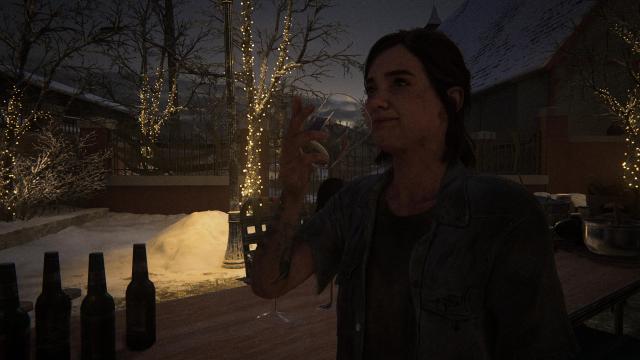
The Last of Us Part 2 takes place several years after the events of TLoU. Ellie and Joel have settled in Jackson, but when we return to them, we find their relationship is strained. An altercation with a militant faction, the W.L.F., sets the course for the story, which is as brutal as it is emotive. It’s difficult to talk about TLoU Part 2’s story without spoiling its captivating twists and turns, so forgive me for being vague—if this is your first time playing the sequel, you’ll thank me later. For anyone revisiting TLoU Part 2 with Remastered, you know what you’re in for. That doesn’t mean the PS5 title is a like-for-like of the PS4 version. While the story remains the same, there are several new additions for returning players to sink their teeth into.
The first is the inclusion of the Lost Levels: three cut sequences that have been restored as bonus content. The levels are understandably unfinished, but according to the accompanying commentary, Naughty Dog included them so players can see the “building blocks” of game development.
The first level sees you playing as Ellie in a cut Jackson party sequence, where you can mix a drink and chat with select residents; the second sees Ellie escaping from a sewer; and the third (my favorite) sees her hunting down a boar. As a massive fan of the series, it was fascinating to see what could have made its way into the game—and why it didn’t. I felt like I was peeking behind the curtain. Mostly, these cuts seem to have been due to pacing issues, which are evident when you play them. These levels, even if you listen to the commentary, are over fairly quickly, however, so it doesn’t necessarily feel like they add much extra meat to the remaster.
No return
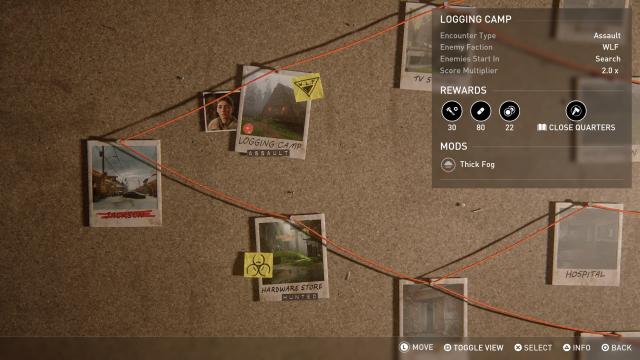
In addition to the Lost Levels, TLoU 2 Remastered introduces a new roguelike mode: No Return. This survival mode sees you choosing a character from The Last of Us Part 2’s main cast, each with its own playstyle, inventory, and traits, then working through a series of encounters until you defeat the boss.
The run is divided into individual randomly generated missions you choose from the Planning Board in your hideout. Each polaroid on the board represents a specific encounter, with locations, enemy factions, mods, victory conditions, and rewards varying for each. For example, the Assault encounter type sees you taking out waves of enemies, while Hunted sees you simply trying to survive until the timer runs out.
How you approach these encounters largely depends on the playstyle of your character. For example, as Dina, I spent lots of time setting mines, while as Abby, I relied on close-quarters combat and battering folk with melee weapons. Different strokes for different folks.
Unlike the campaign, you are limited in the weapons and resources you have to hand in No Return. You start with a simple inventory but pick up resources as you play. The main way to improve your arsenal is by completing encounters and using their rewards to upgrade your weapons at the Workbench, buy new weapons or gadgets at the Trading Post, or by spending Supplements to upgrade your character’s specific skill trees. If you’re lucky, you’ll find something extra in your reward cache.
This mode is a roguelike, however, so dying is permanent. I played on Moderate difficulty with different characters each run and found the challenge increased substantially when I hit the third encounter. Read: I died a lot. You can tweak your run settings and even set your own, however.
No Return is a nice breather from the Remastered campaign, but it does grow stale fairly quickly. Once the novelty of playing as Mel or Jesse wears off, it feels like you’re just revisiting similar levels against the same old faces. I can’t help but think adding an online element to No Return would give it more longevity and maybe fill the hole left by the canceled The Last of Us online game.
Graphical supplements
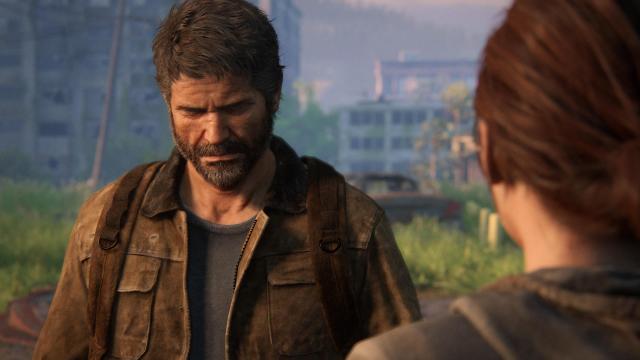
In addition to this new content, TLoU Part 2 Remastered also features a range of excellent graphical enhancements. In Fidelity mode, the game can run at 4K, while VRR support and framerate improvements aim to make it smoother overall.
The Last of Us Part 2 was already visually impressive on the PS4, but the remaster takes things one step further with its finer details. Facial animations for characters like Ellie and Joel are considerably more lifelike, while the Infected have far more gruesome detail. These enhancements really stood out to me in TLoU Part 2’s most brutal sequences, especially, yes, that scene.
Alongside its visual improvements, Remastered also introduces DualSense support, with haptic feedback subtly making movement more immersive as jumps reverberate through your hands and adaptive triggers, making Ellie’s bow draws feel taut and responsive.
Remastered’s haptics are crucial for the new speech-to-talk accessibility feature seen in TLoU Part 1. It not only provides a helpful touch prompt but also makes dialogue punch harder, with the controller vibrating to the pace of each character’s speech.
The definitive edition
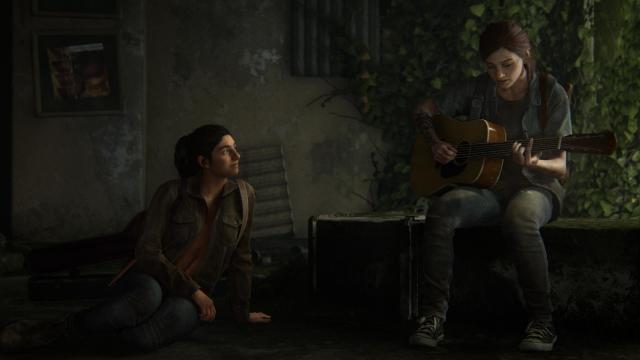
The Last of Us Part 2 Remastered finally brings Naughty Dog’s lauded sequel to the PS5 with a whole host of welcome graphical improvements and new content, making it, without a doubt, the definitive edition of this emotional rollercoaster.
TLoU Part 2’s story beats hit just as hard as they did the first time, and the extra graphical detail in its most brutal scenes will have you squirming all the more. But if you’re expecting hours of extra content here, you’ll be disappointed. No Return is good fun but quickly grows stale, and while the Lost Levels provide worthwhile behind-the-scenes insight for series fans, they’re short and may not interest most players.
If you’ve been waiting to play The Last of Us Part 2, Remastered is the perfect opportunity to experience this game at its best. Just be prepared for the heartache—in all its visually-enhanced glory.

- A captivating story
- Visual improvements add extra character detail
- Inclusion of speech-to-talk accessibility
- No Return offers a breather from campaign
- Lost Levels provides extra insight for fans
- No Return gets stale after a while
- Extra Lost Levels content is brief


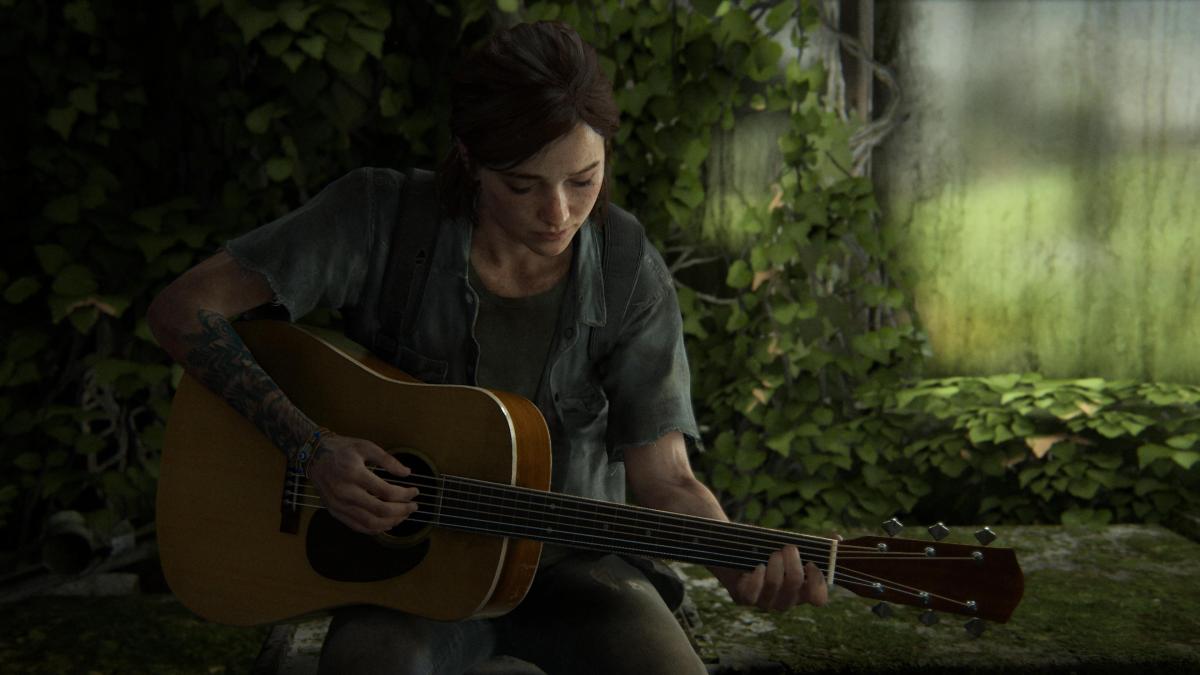
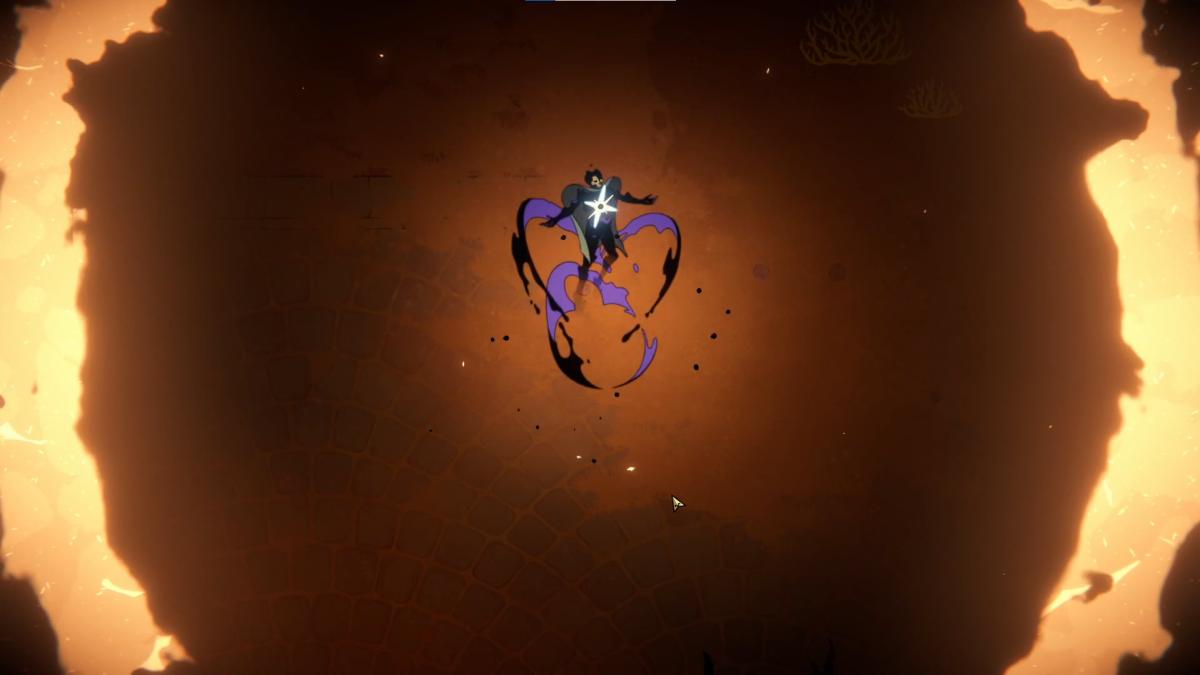
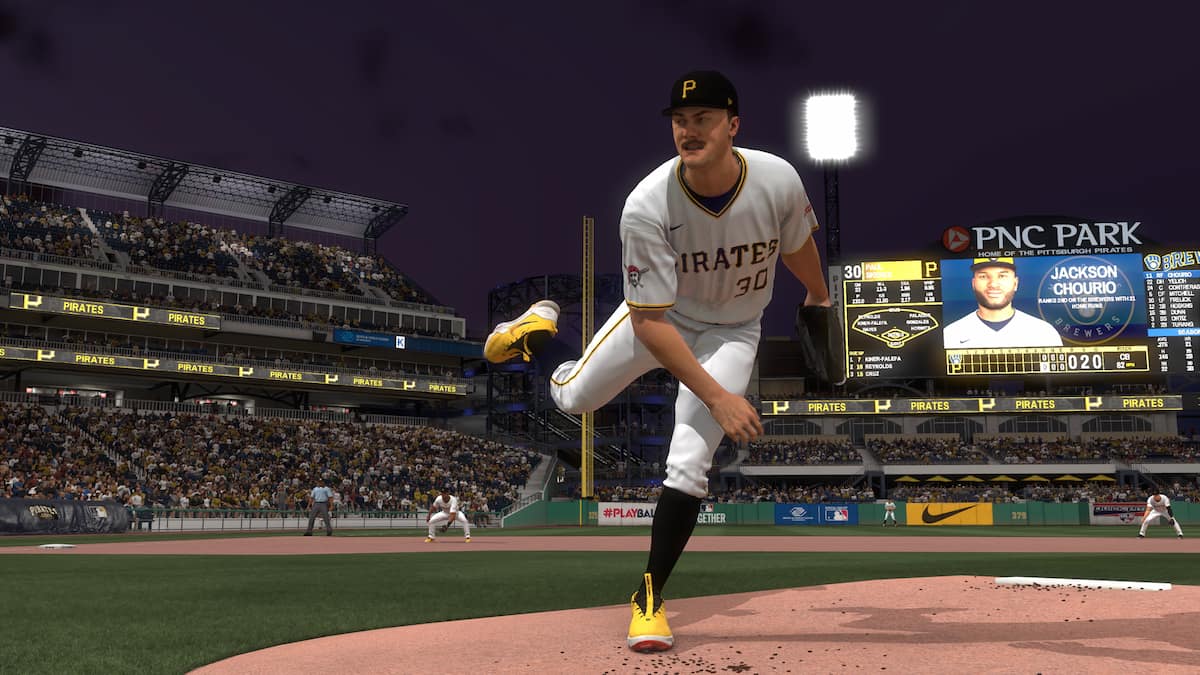
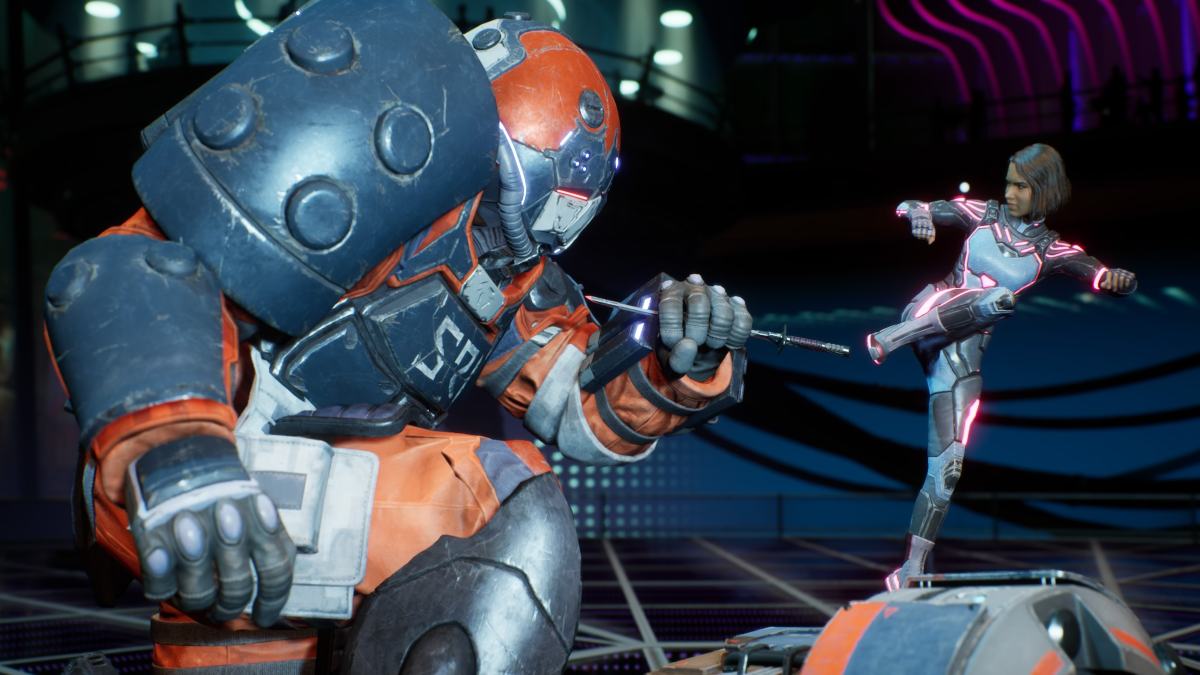


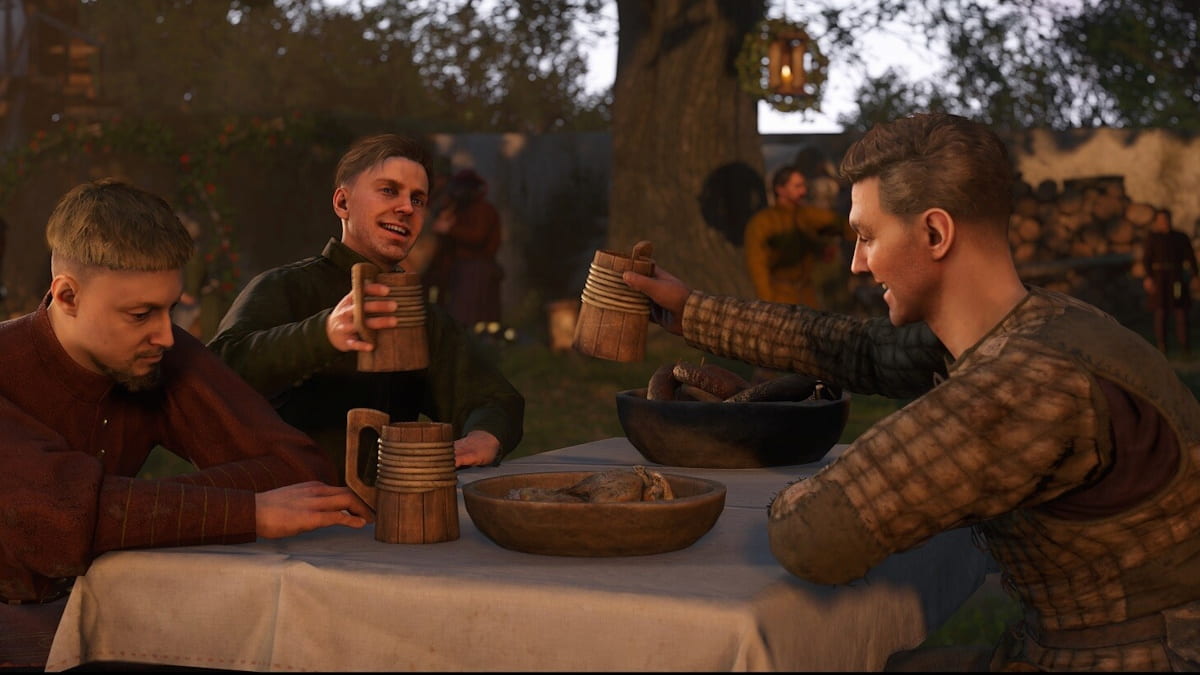
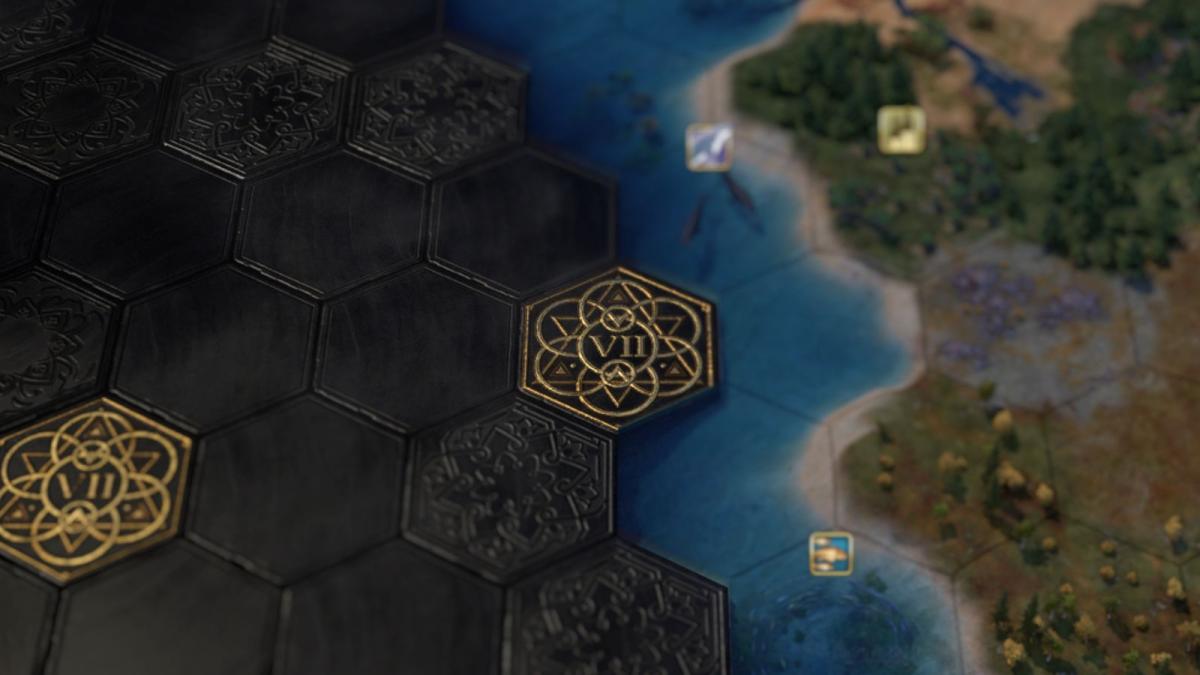
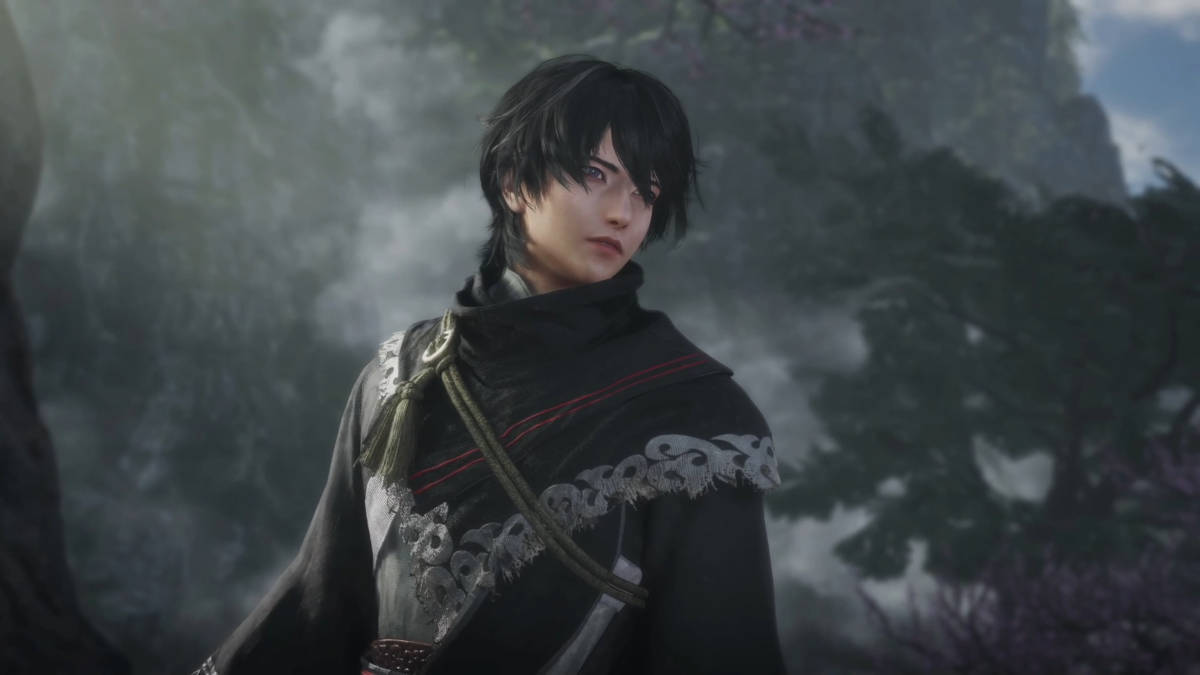


Published: Jan 16, 2024 10:00 am